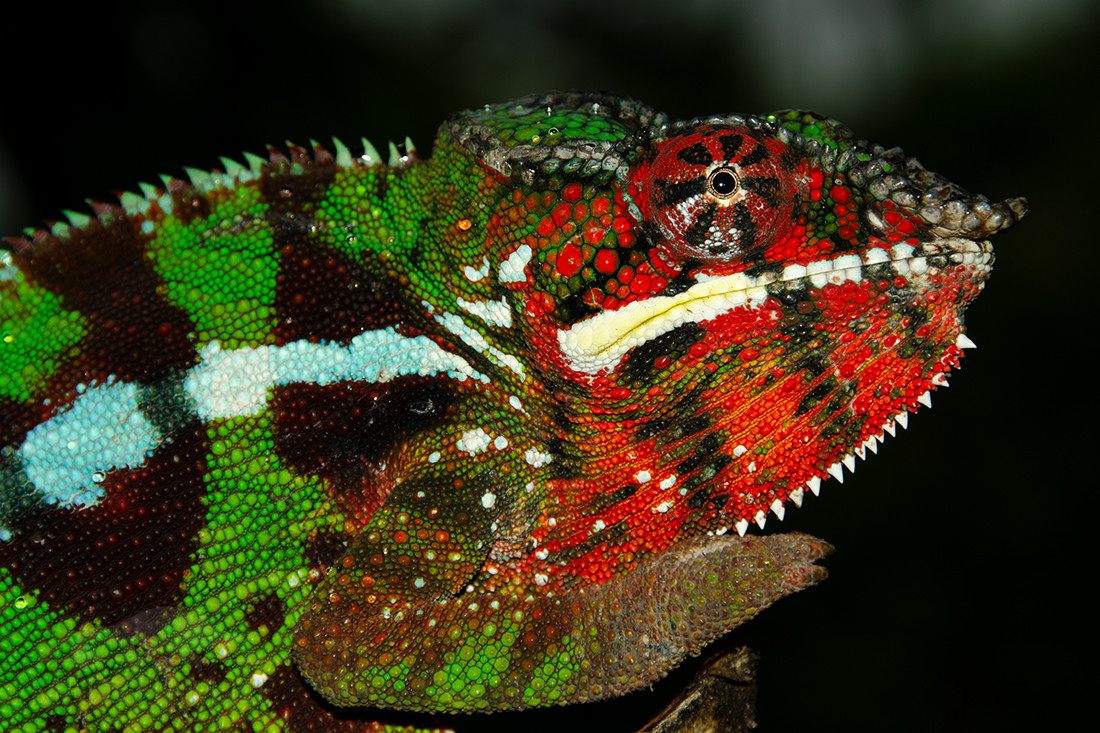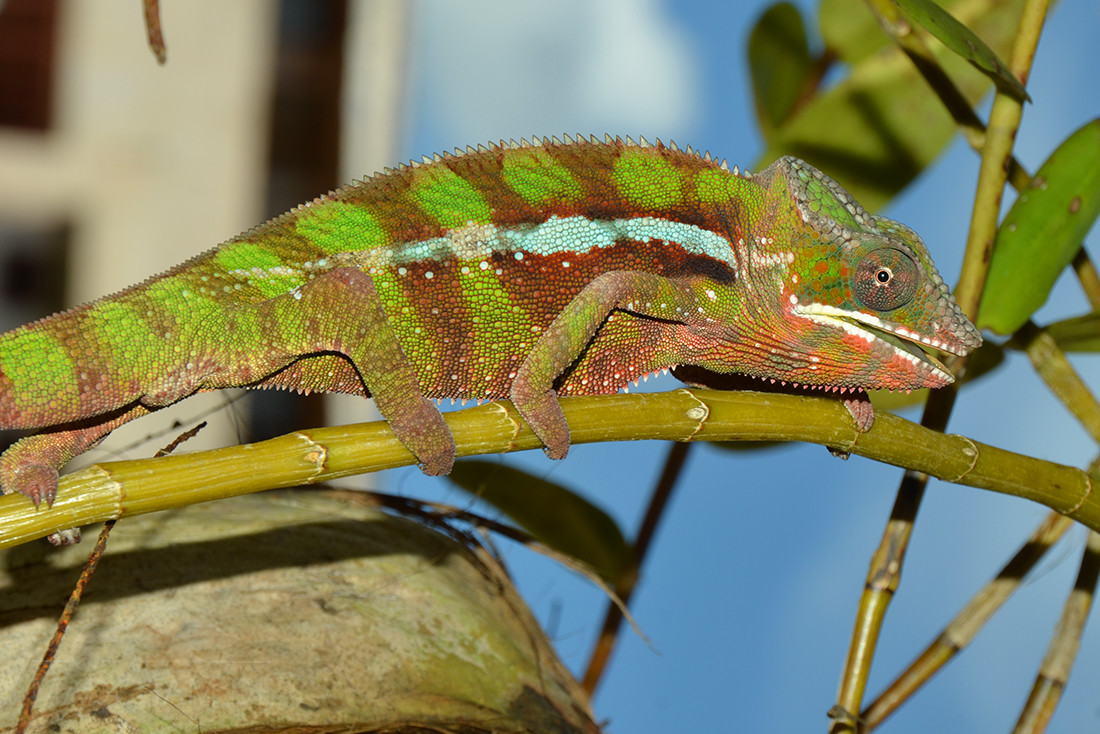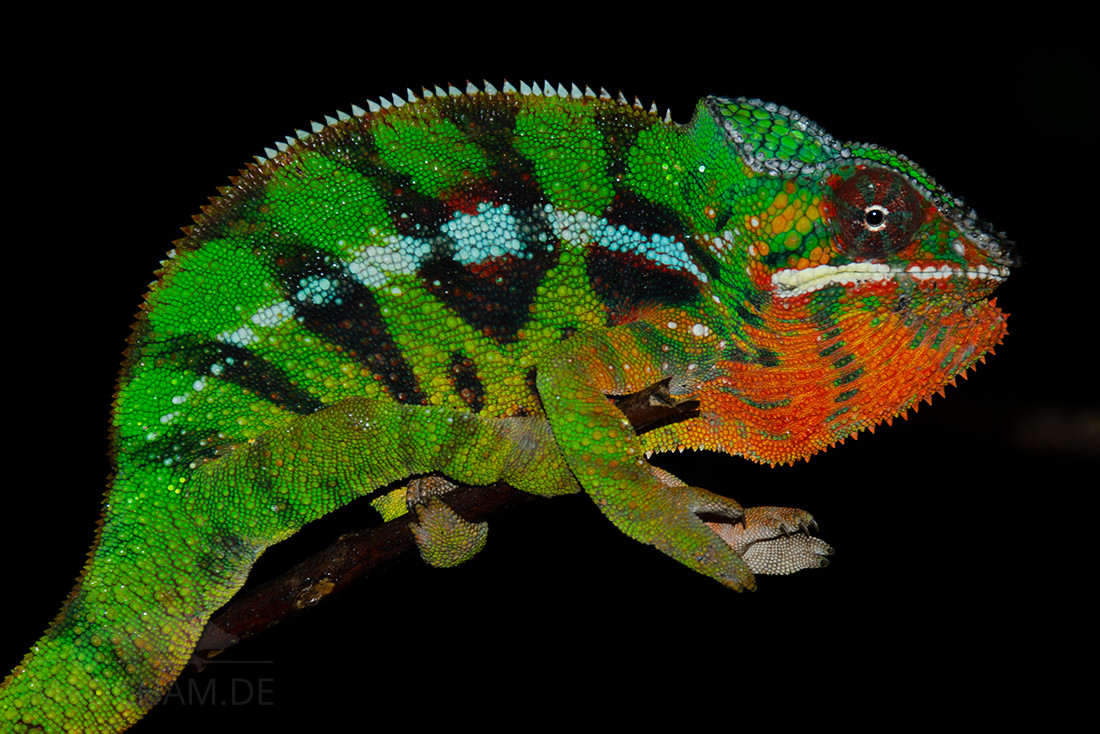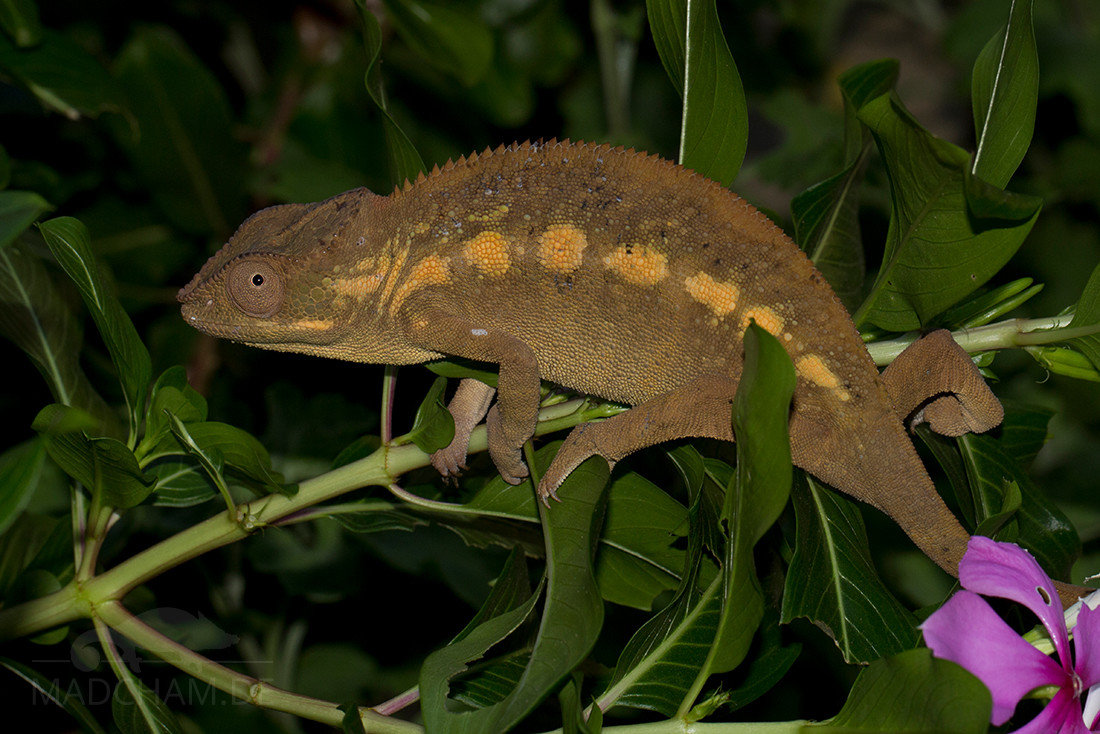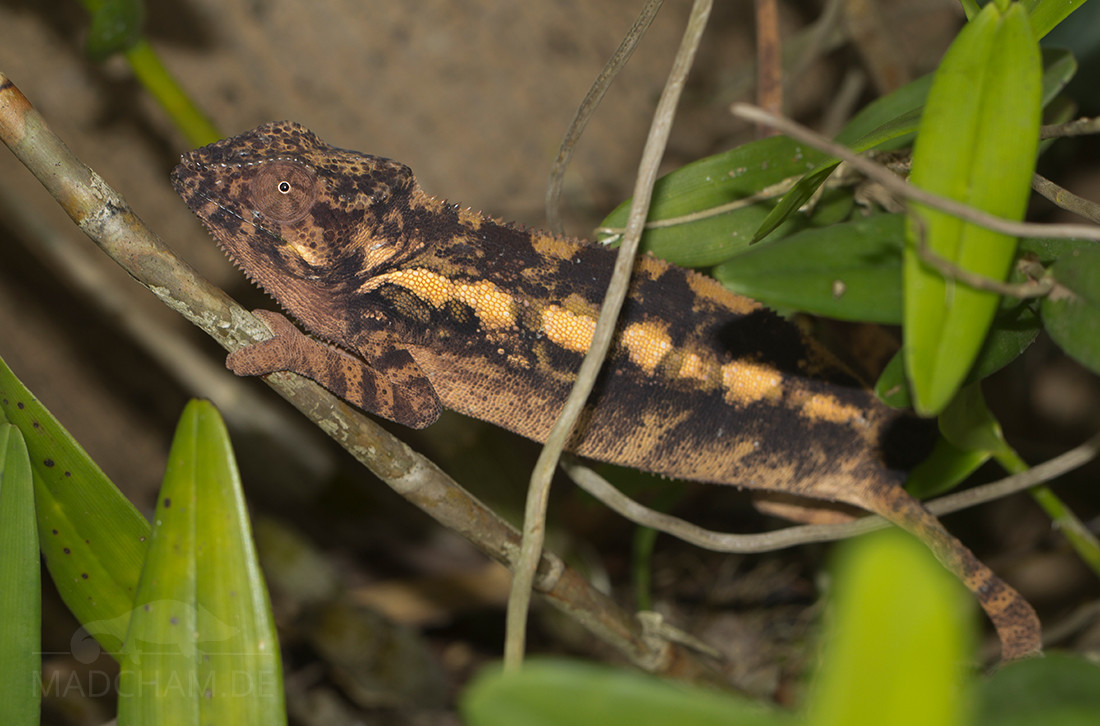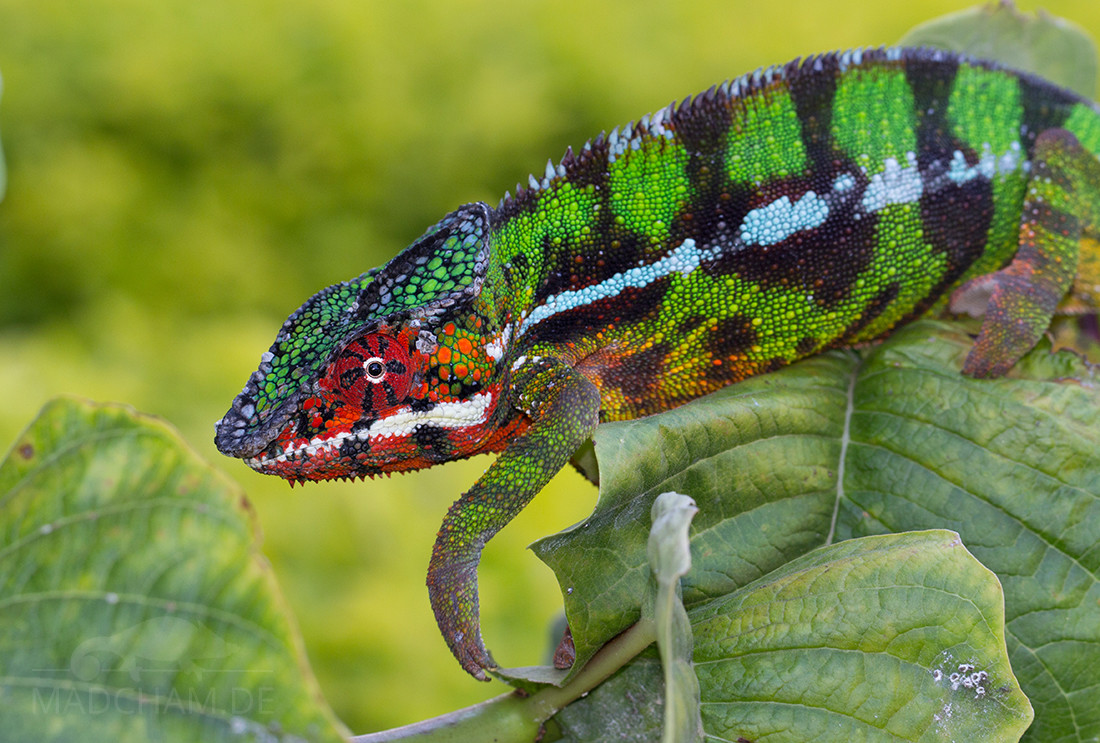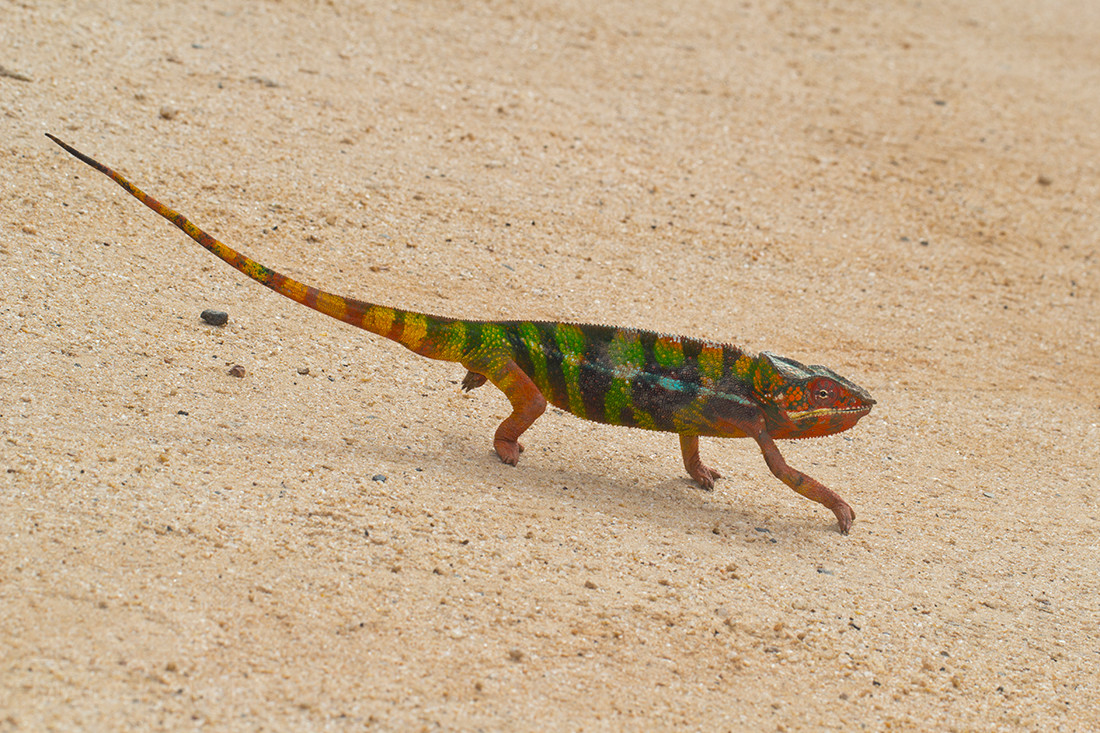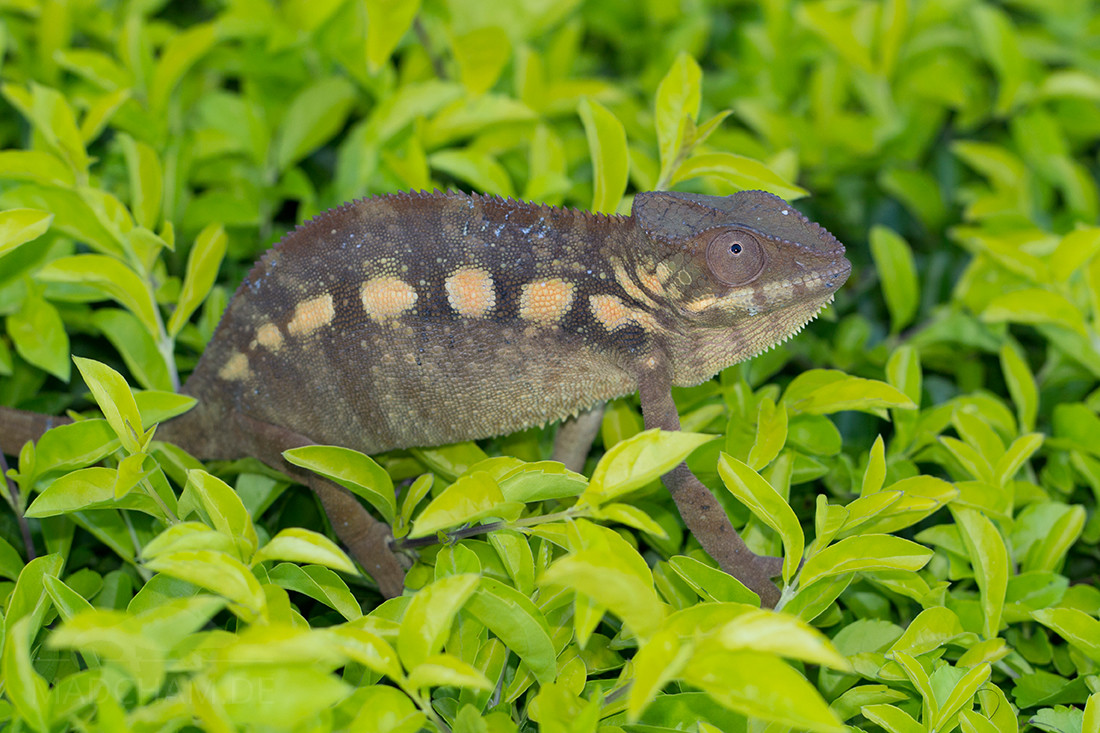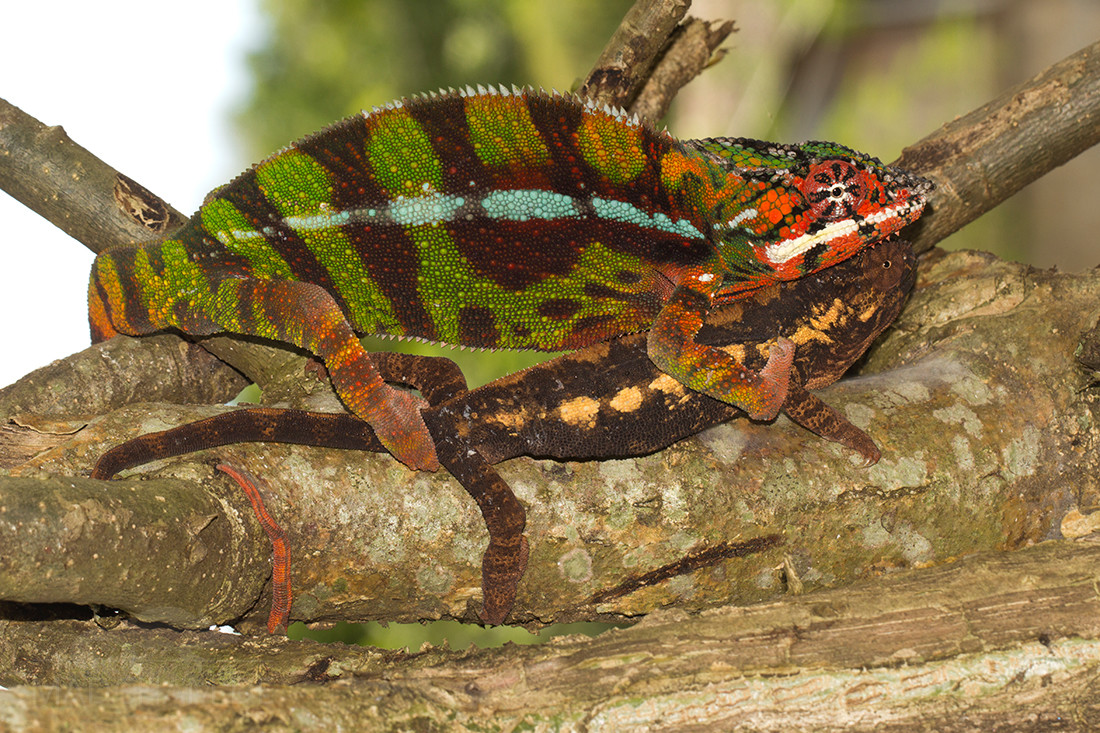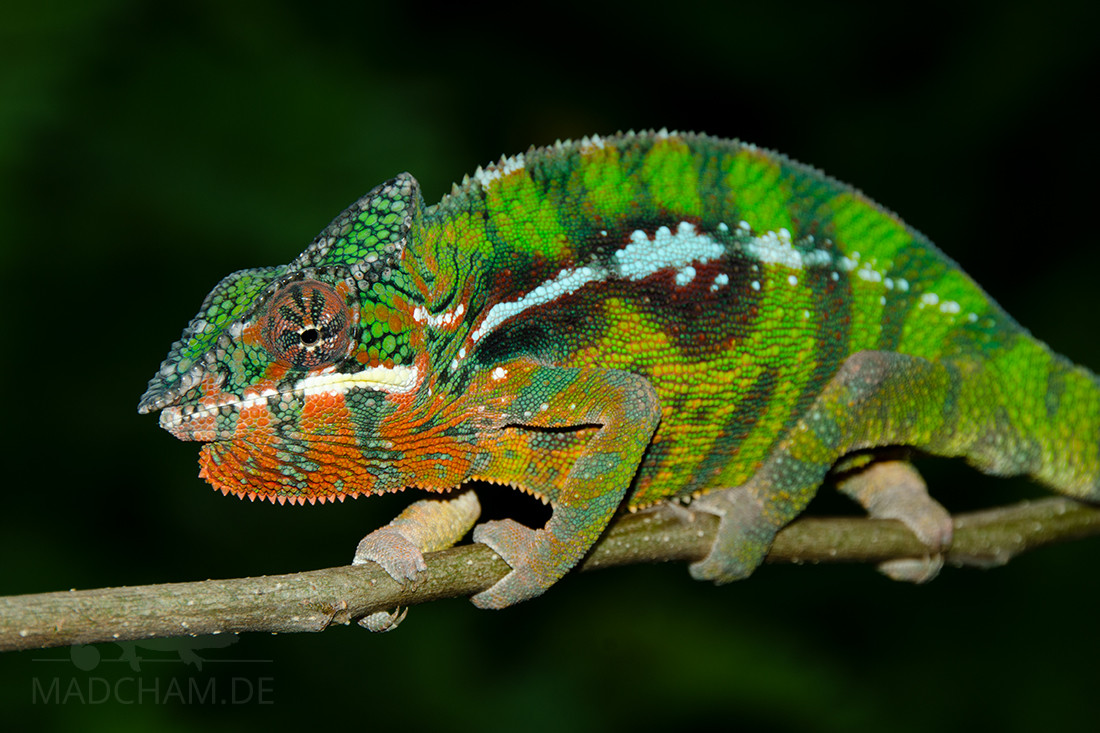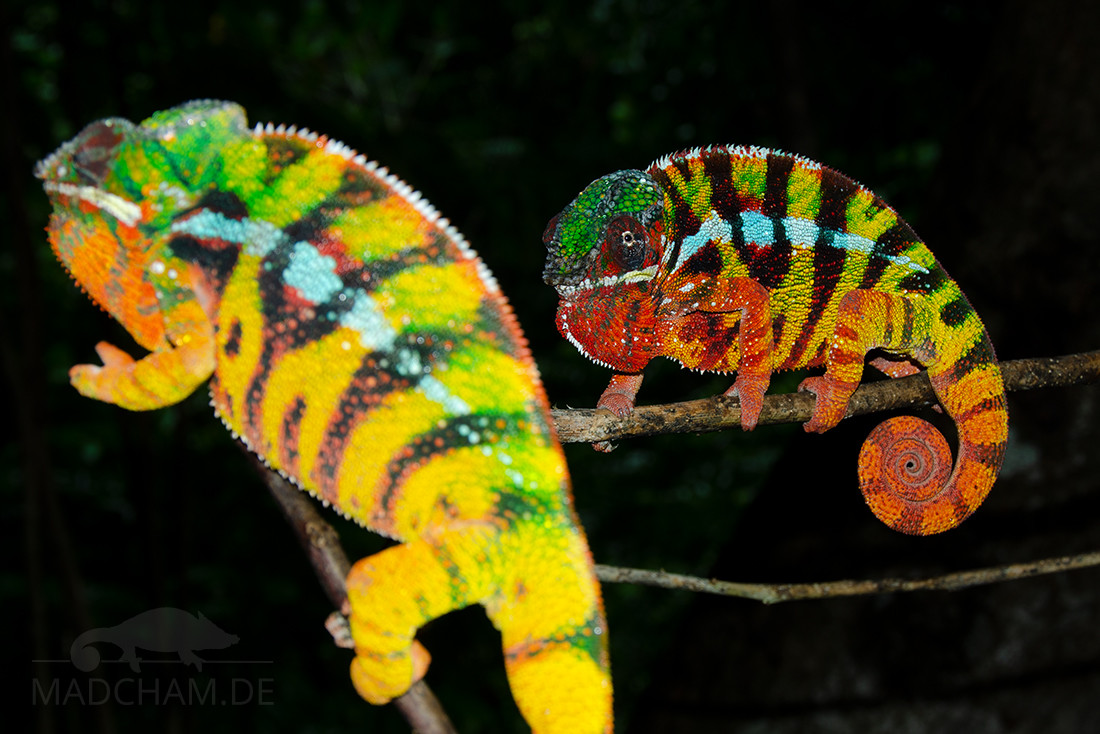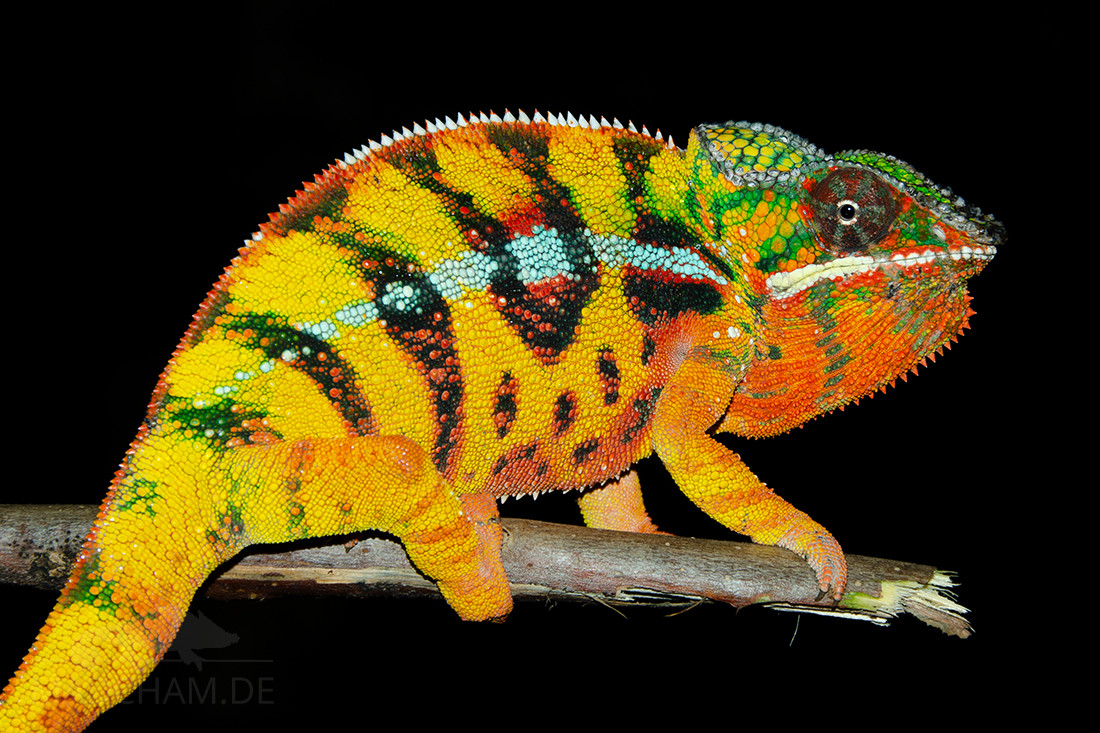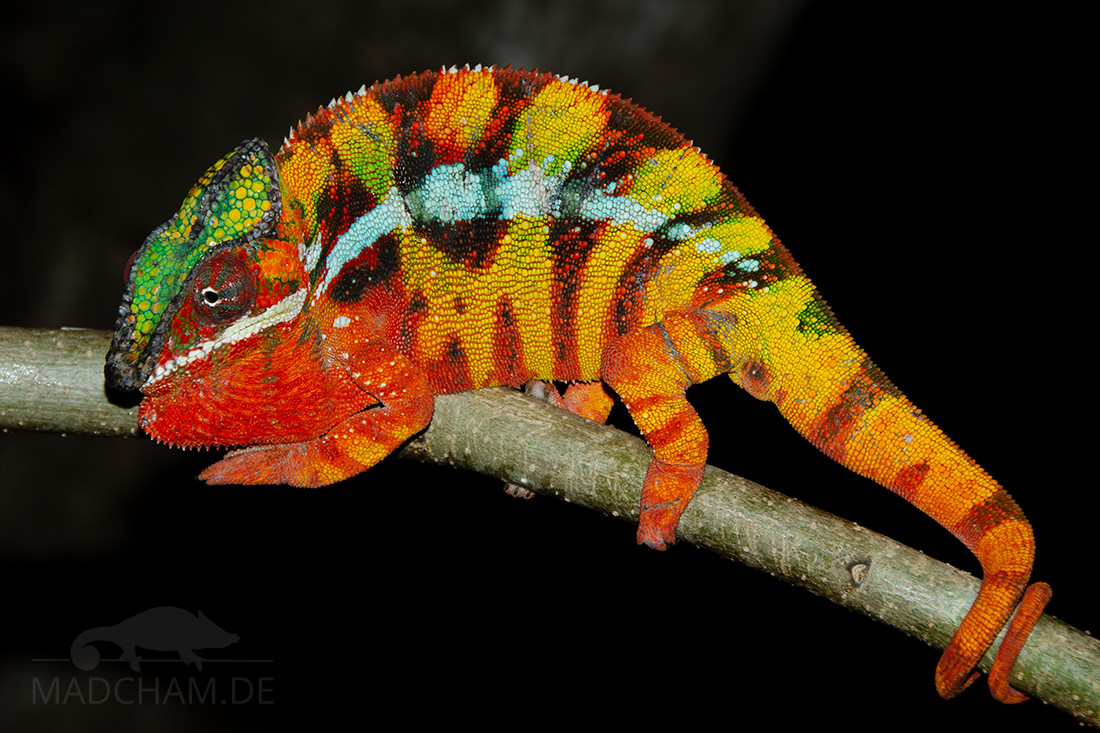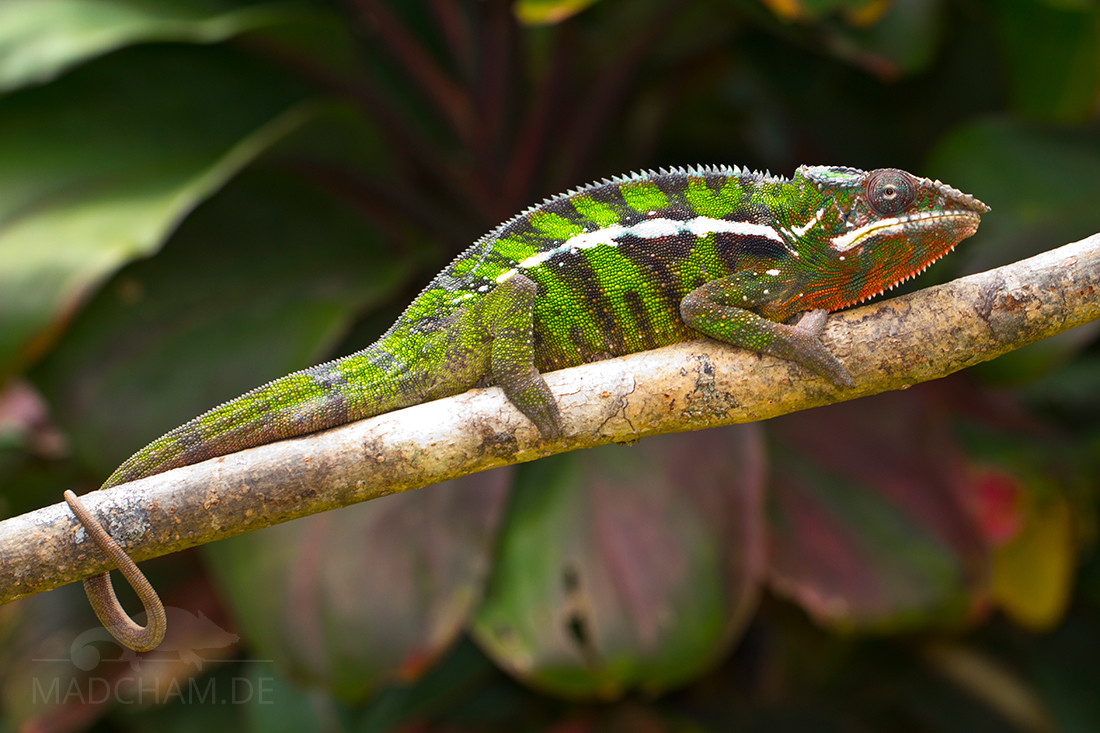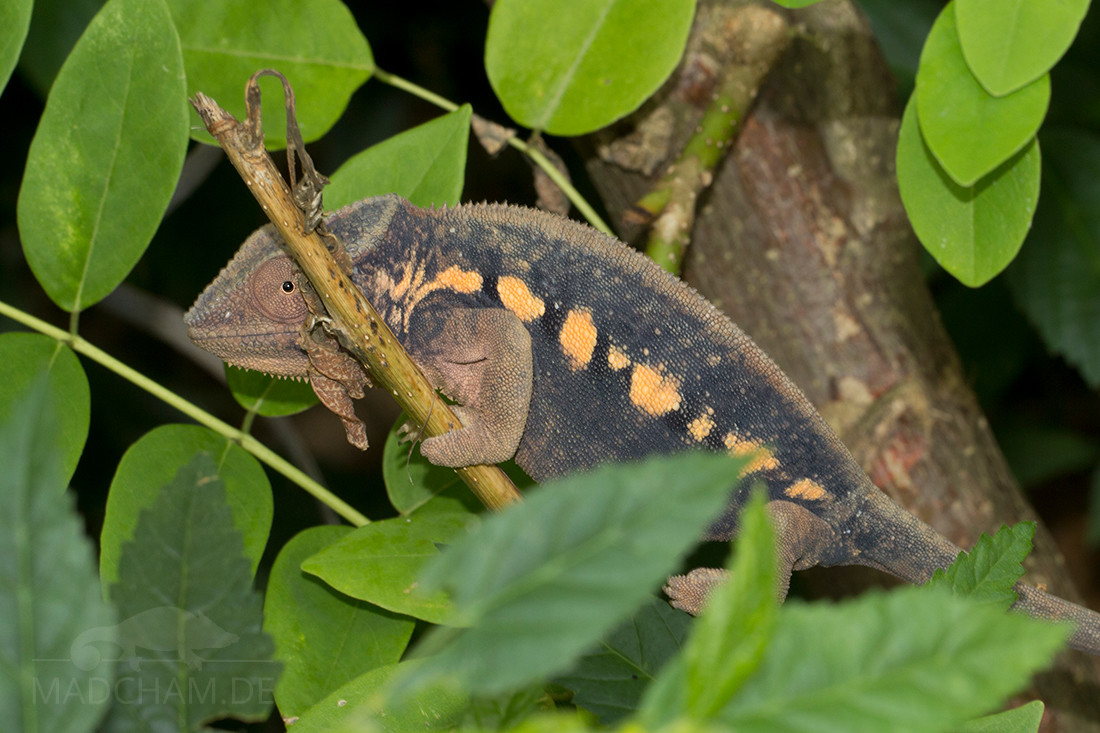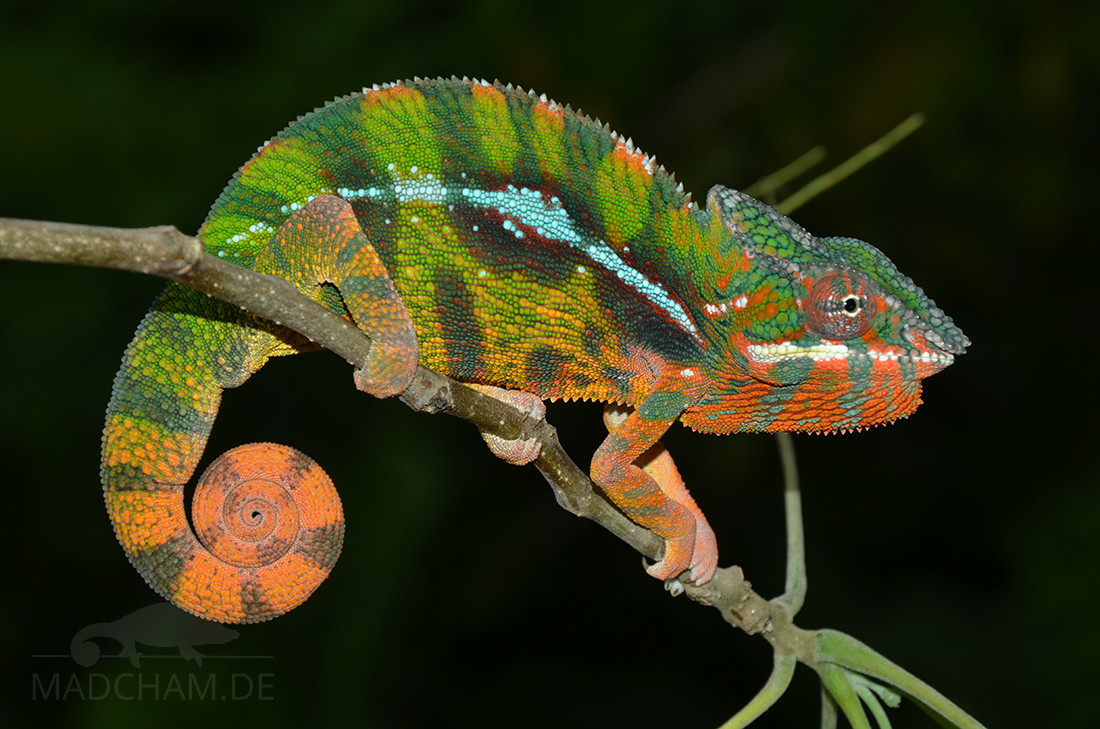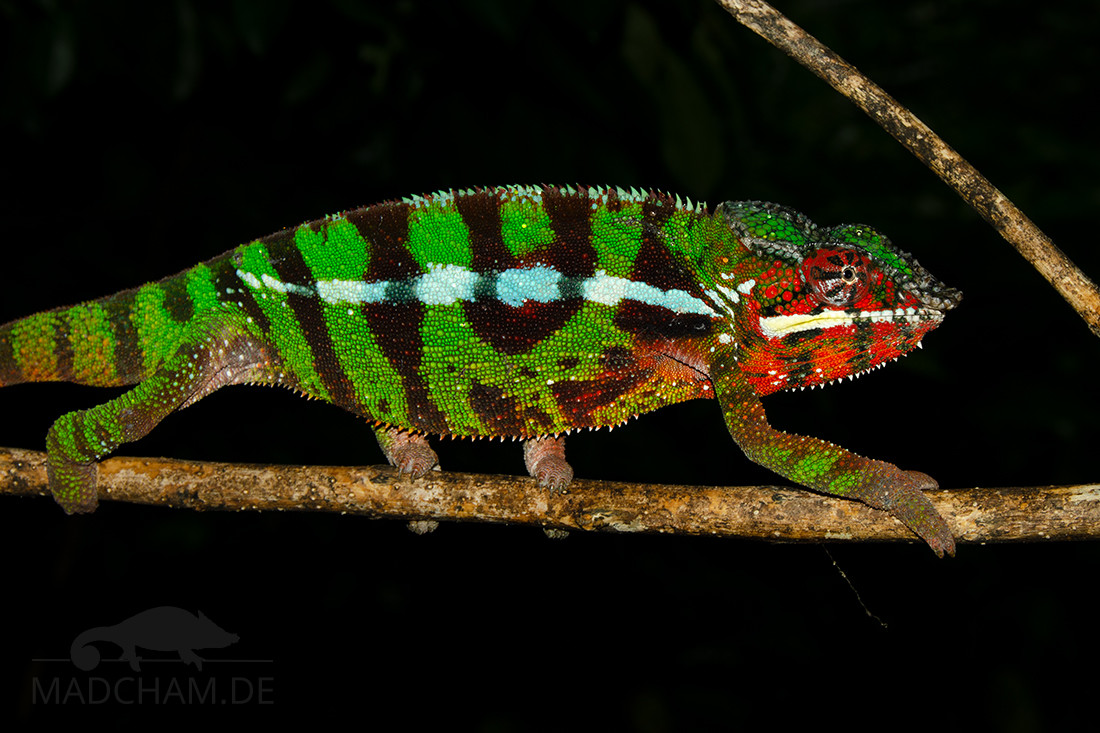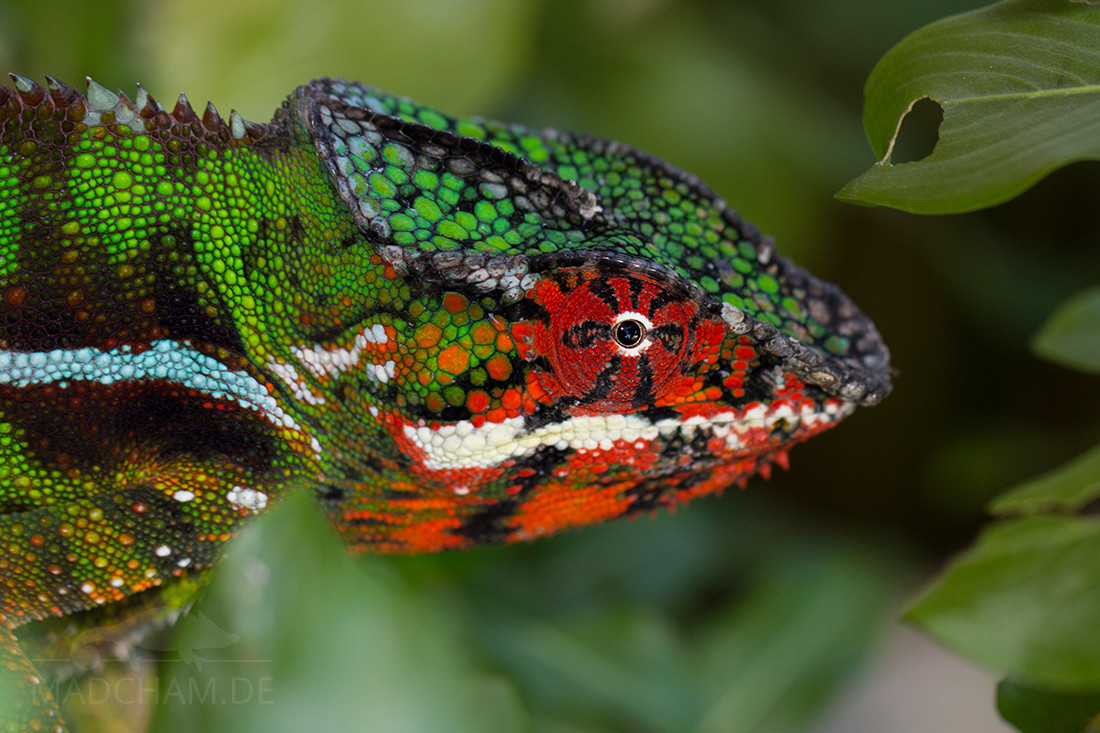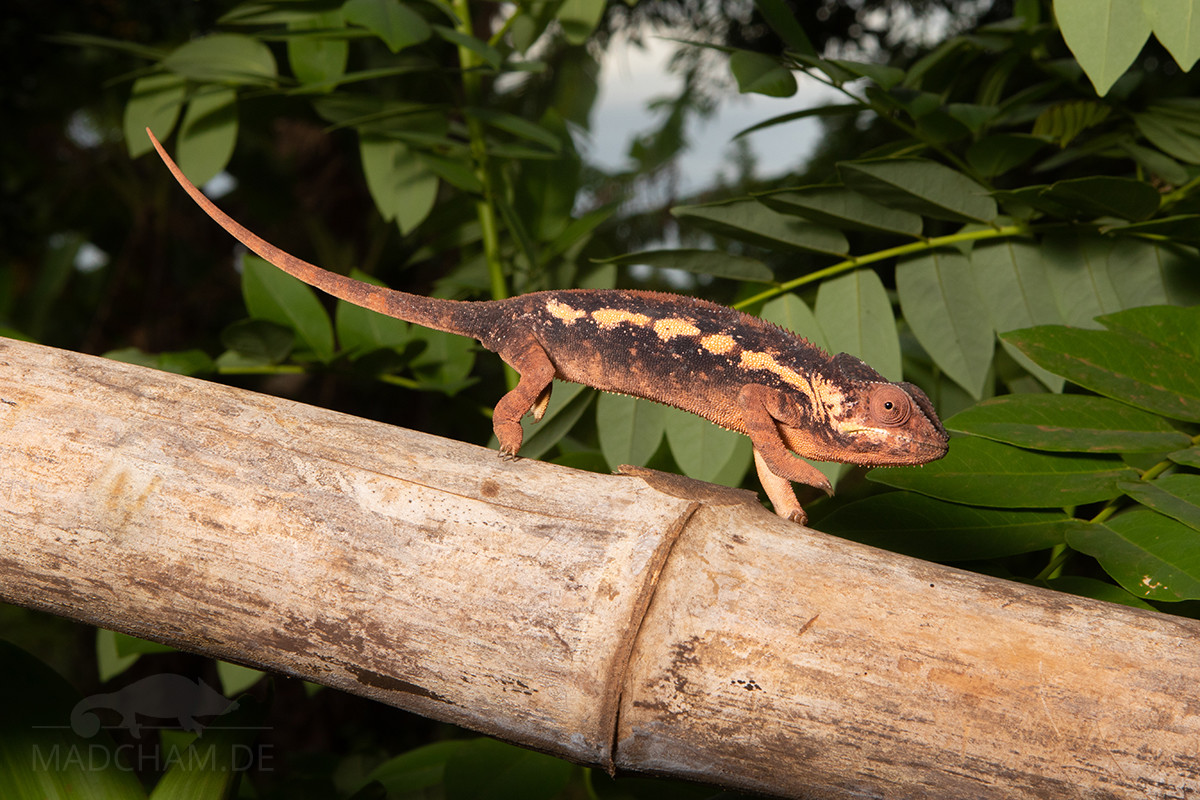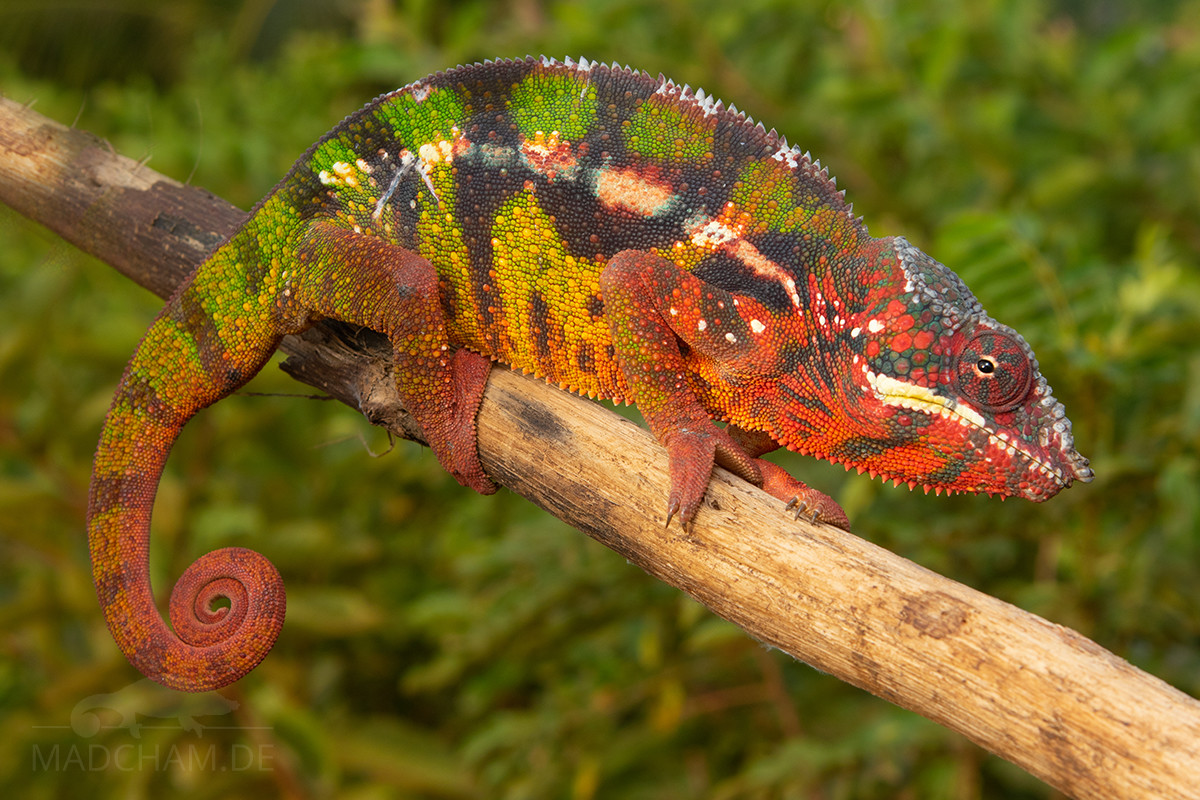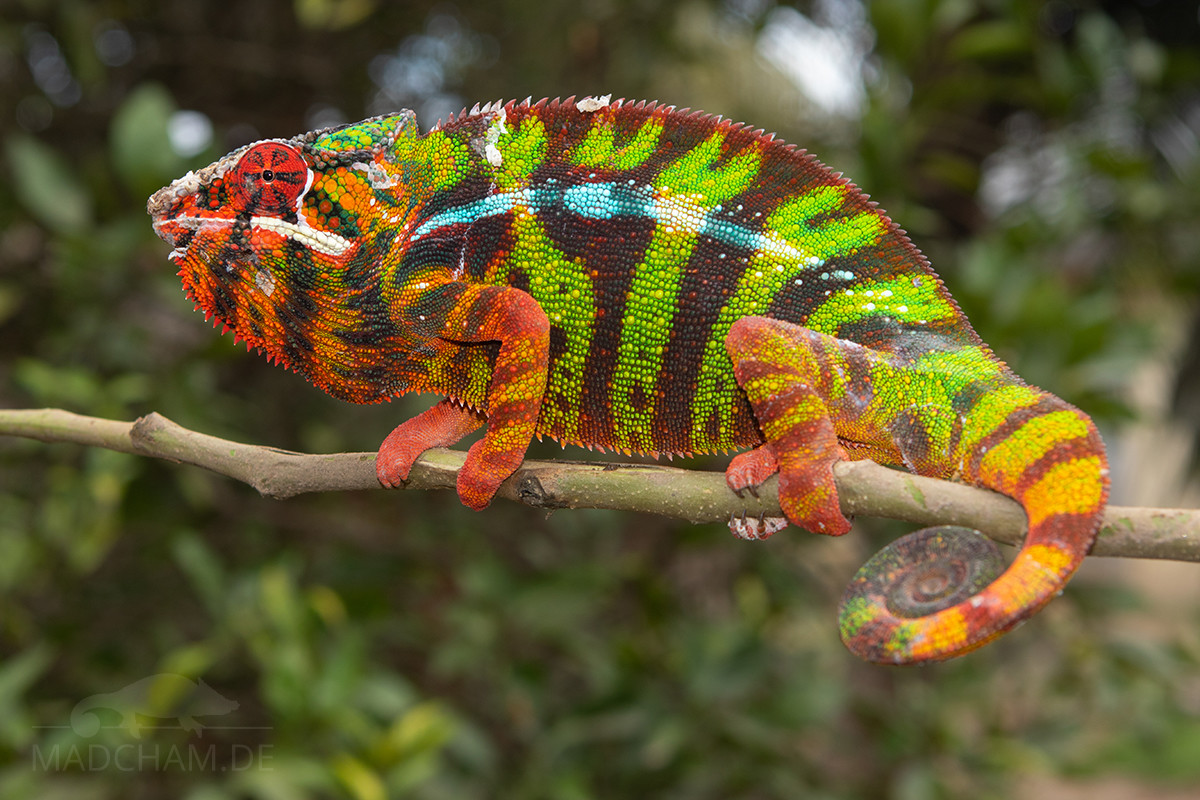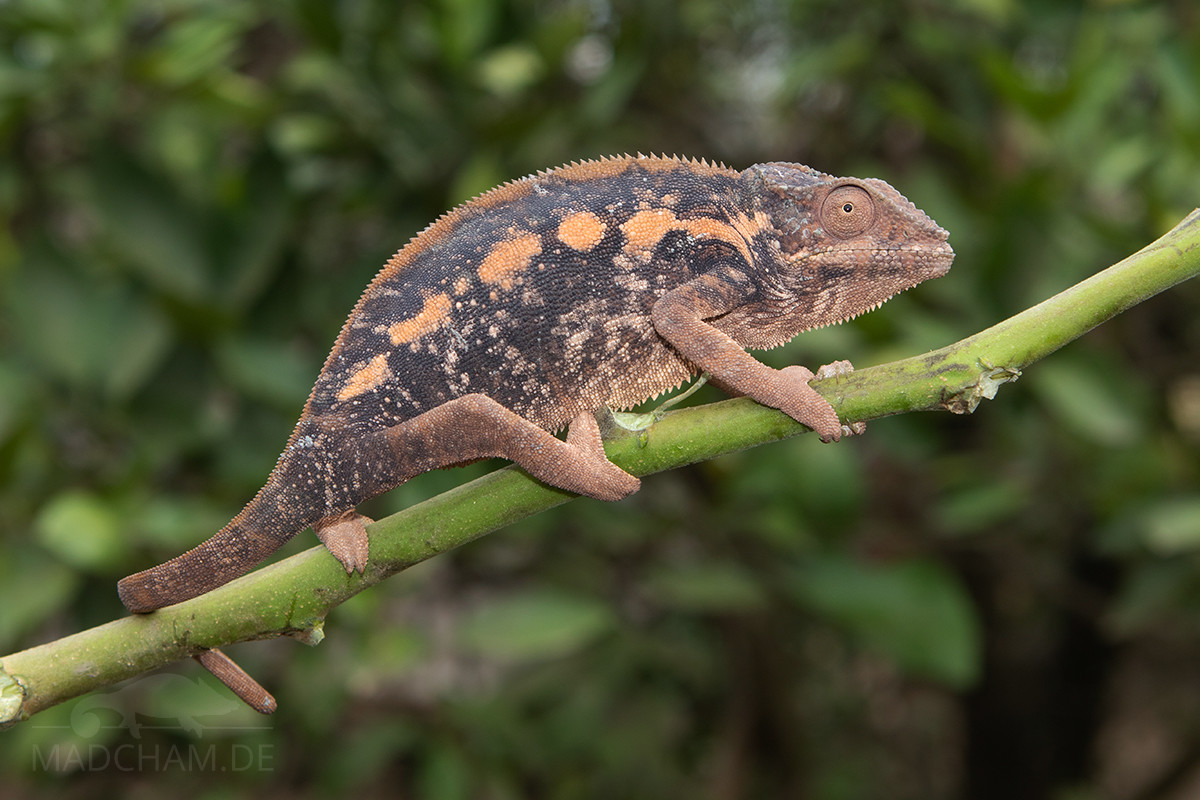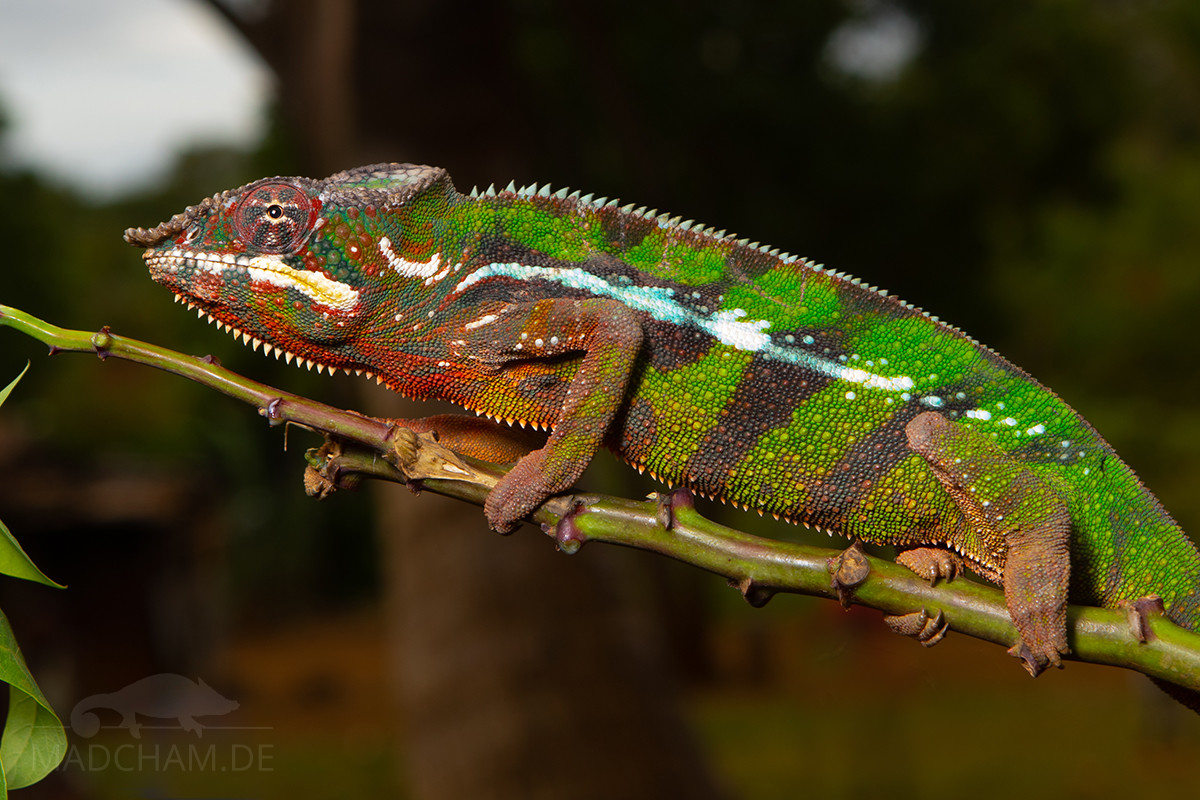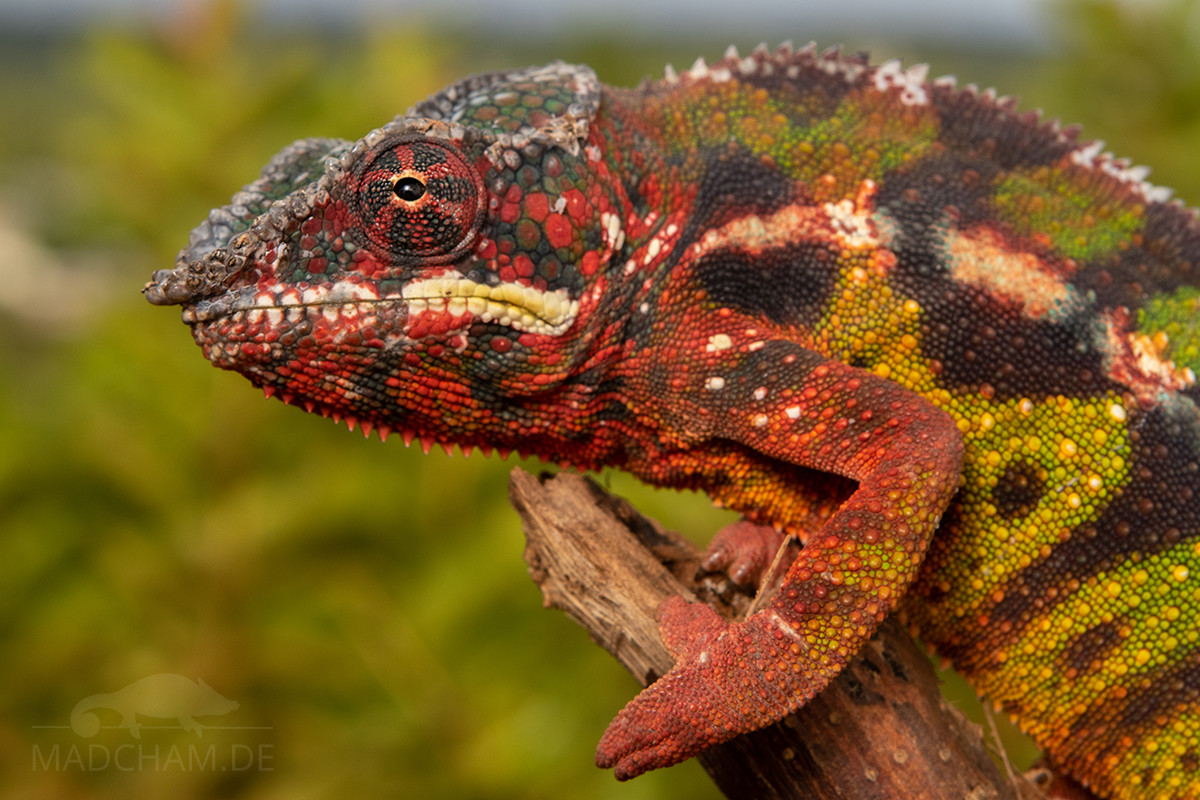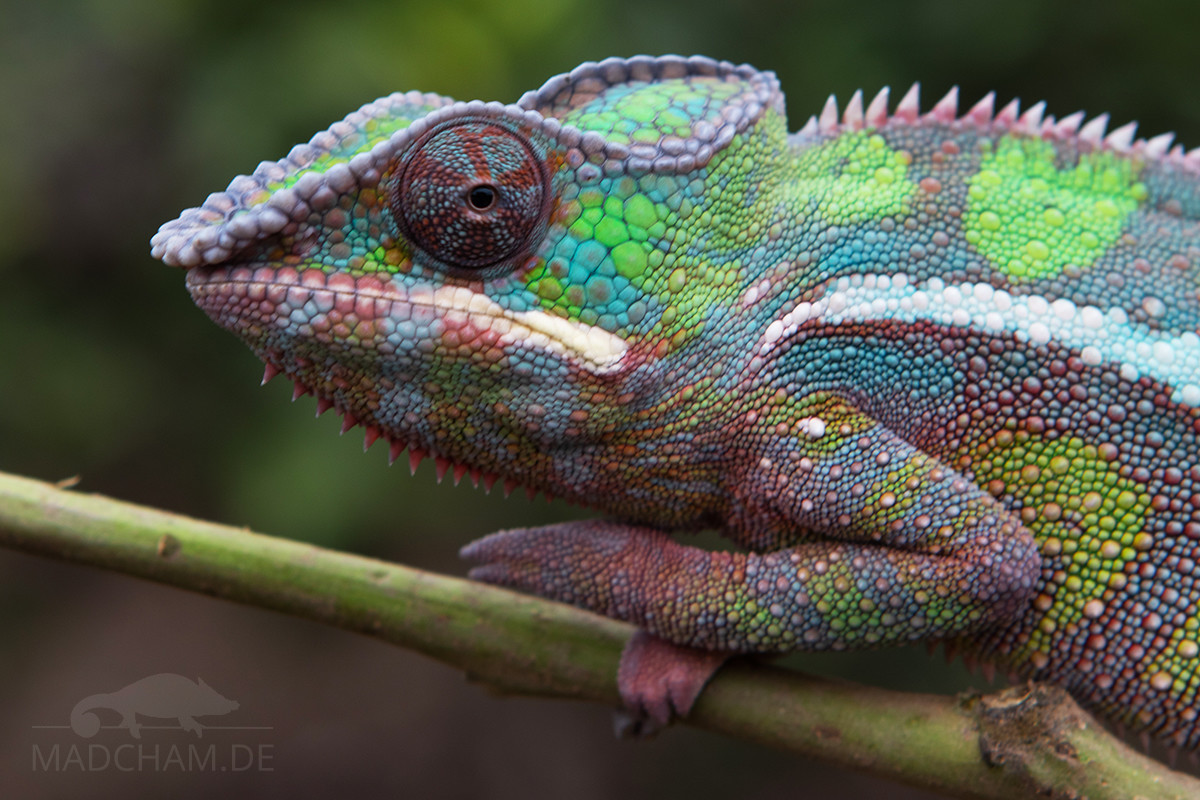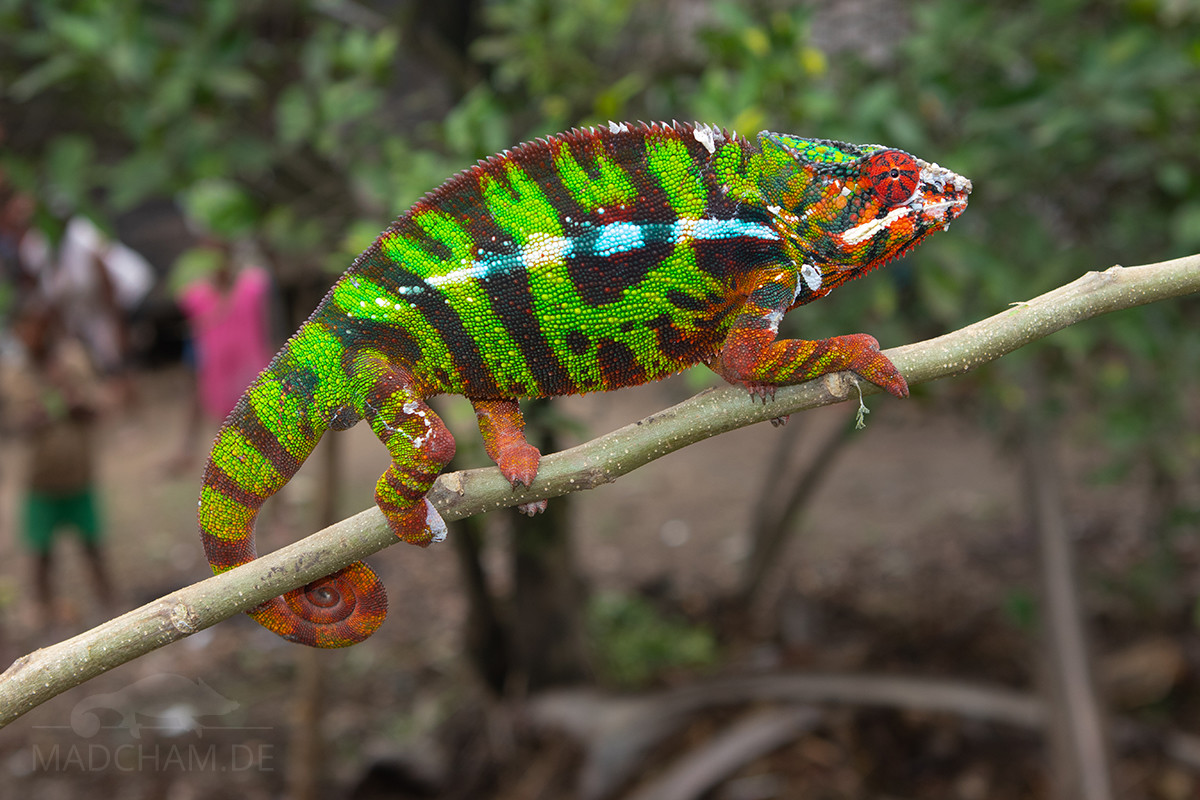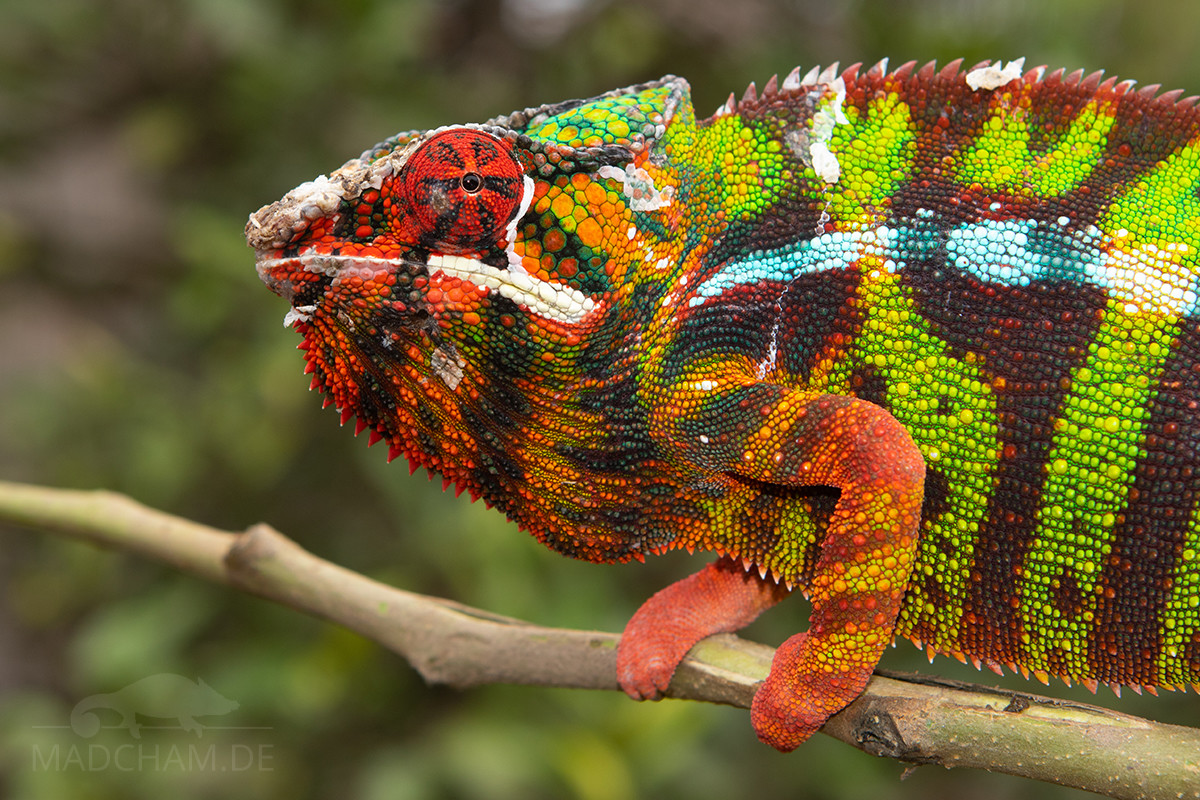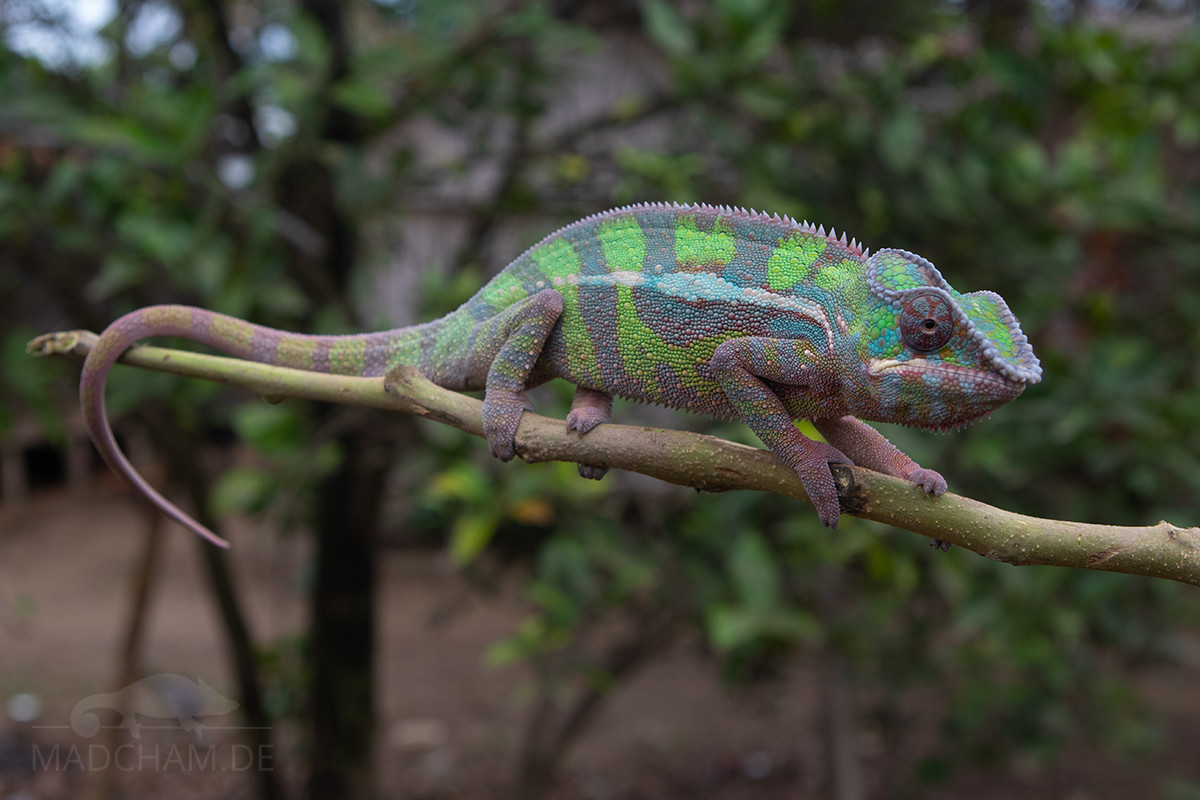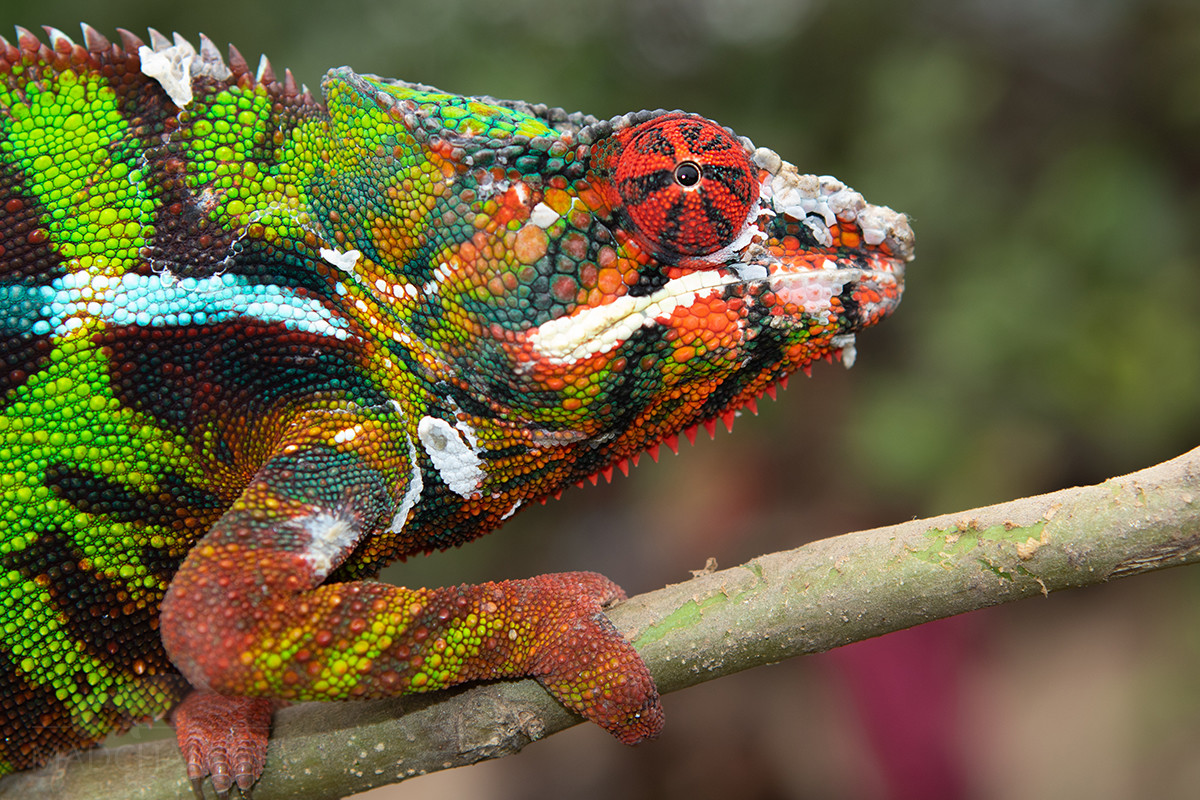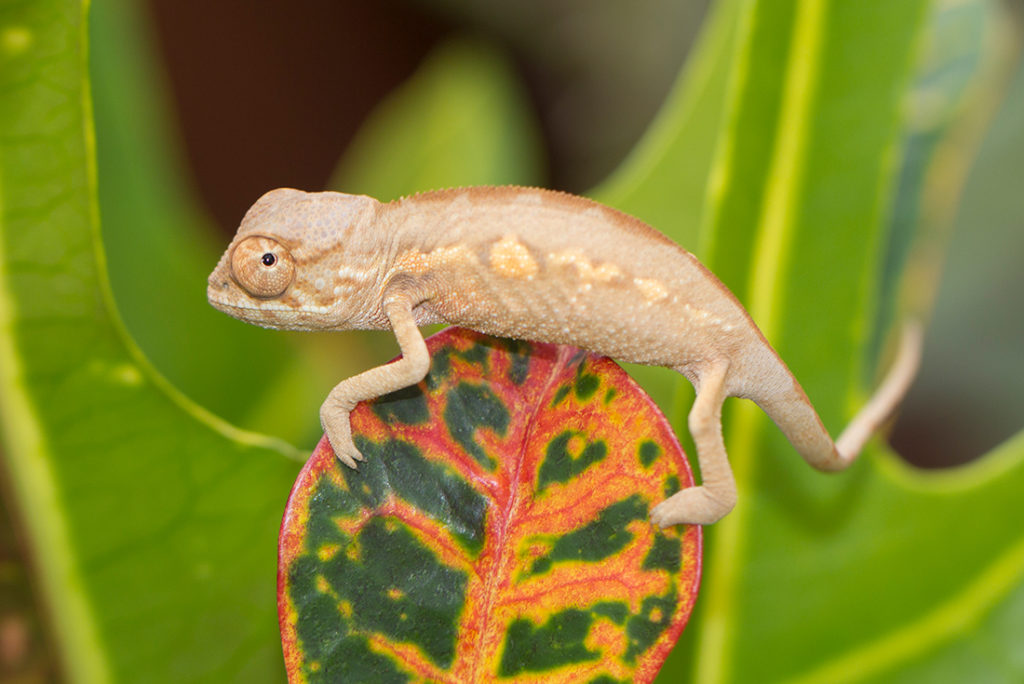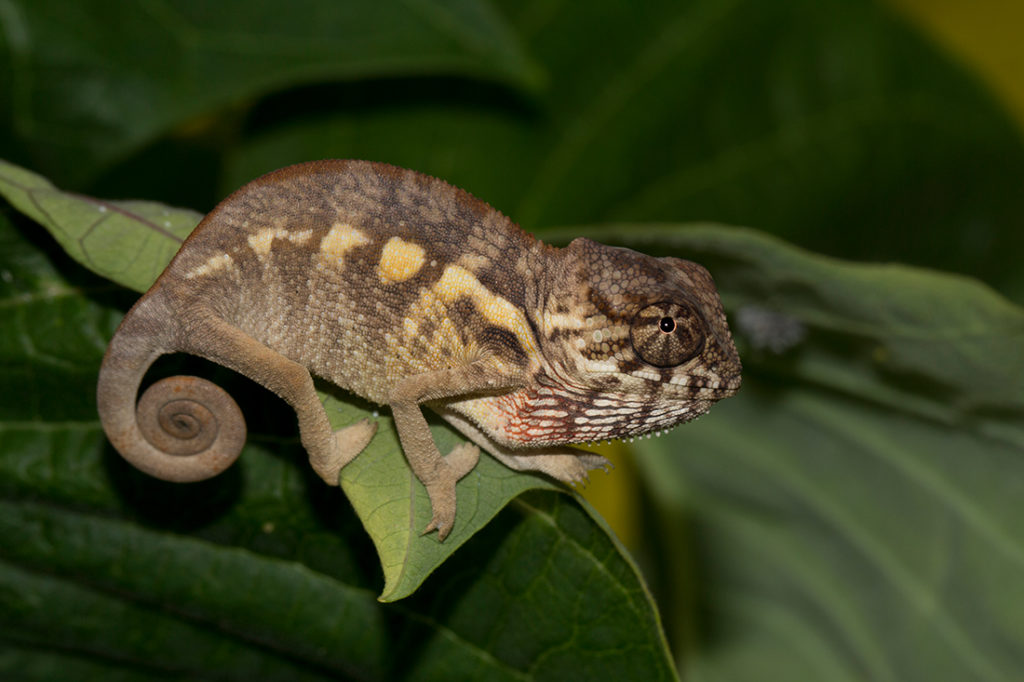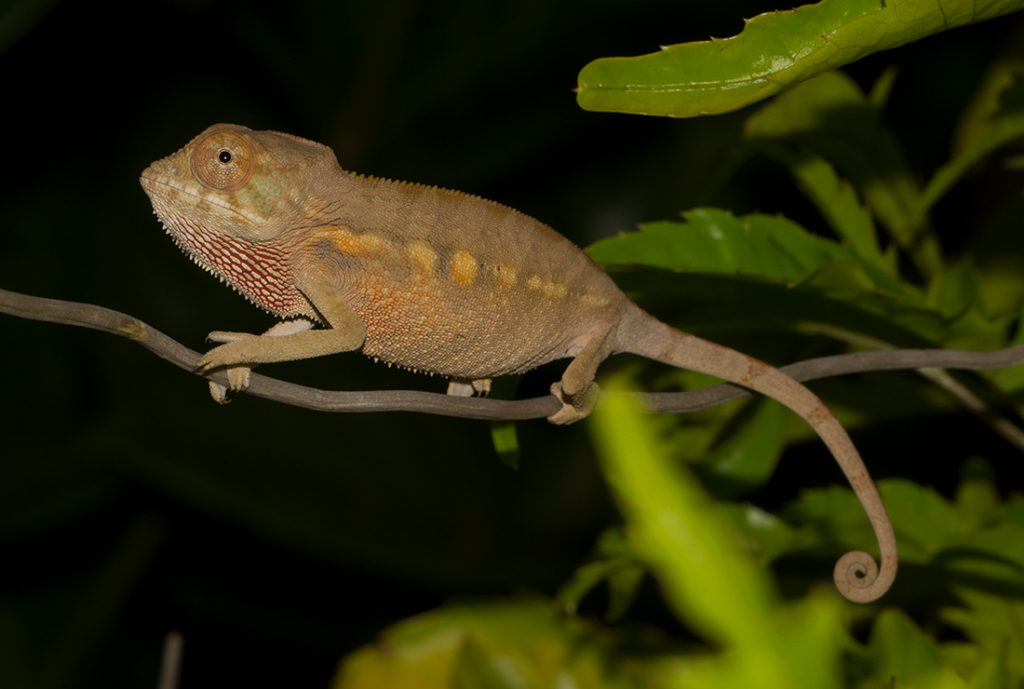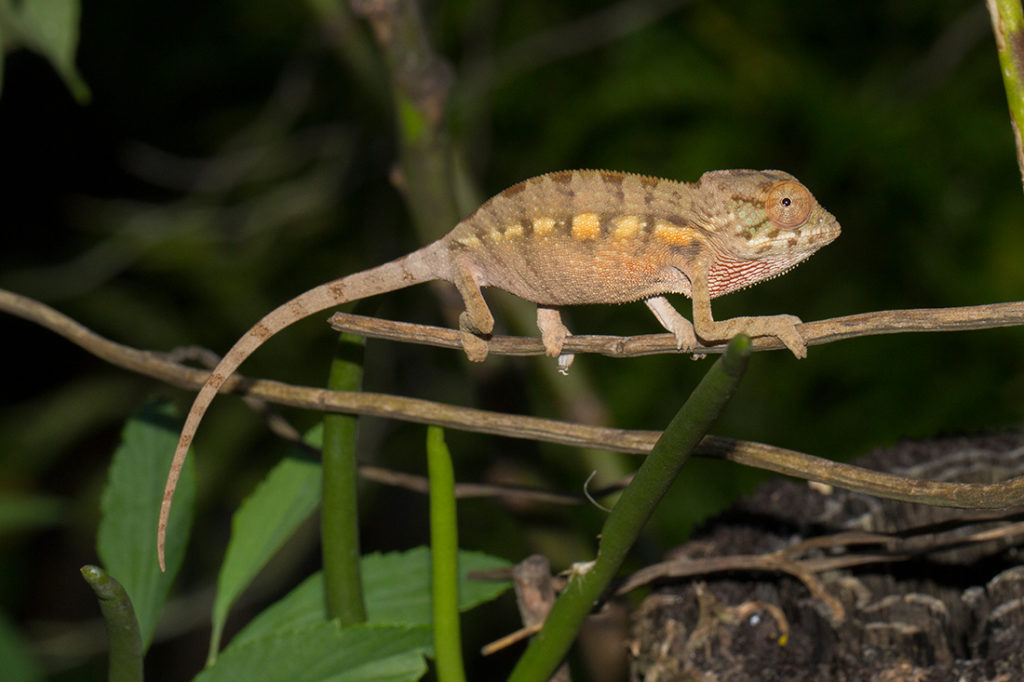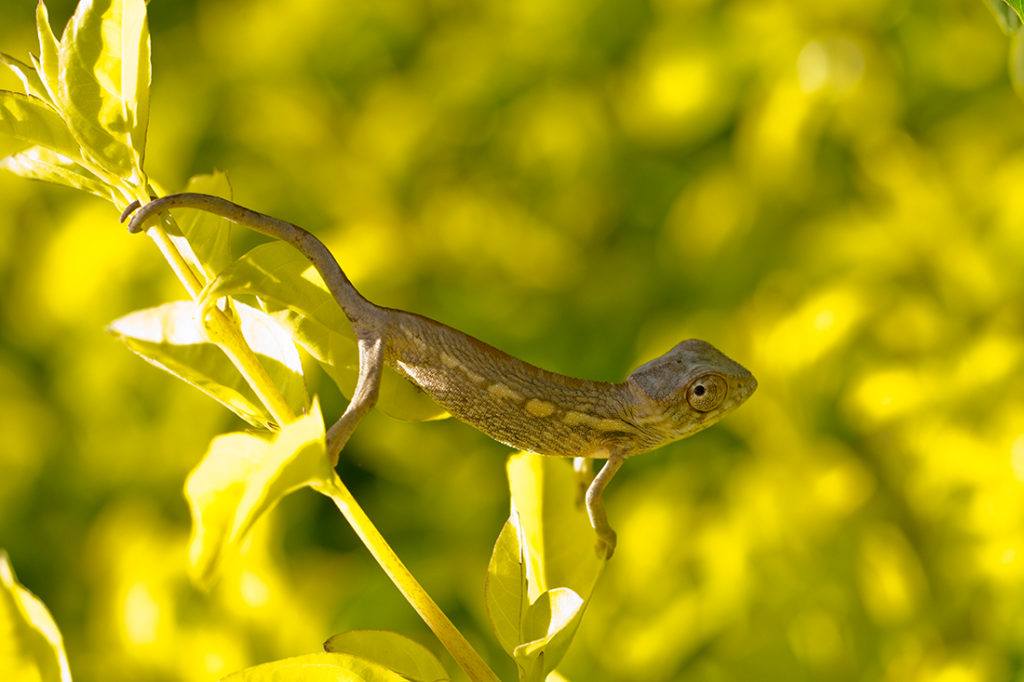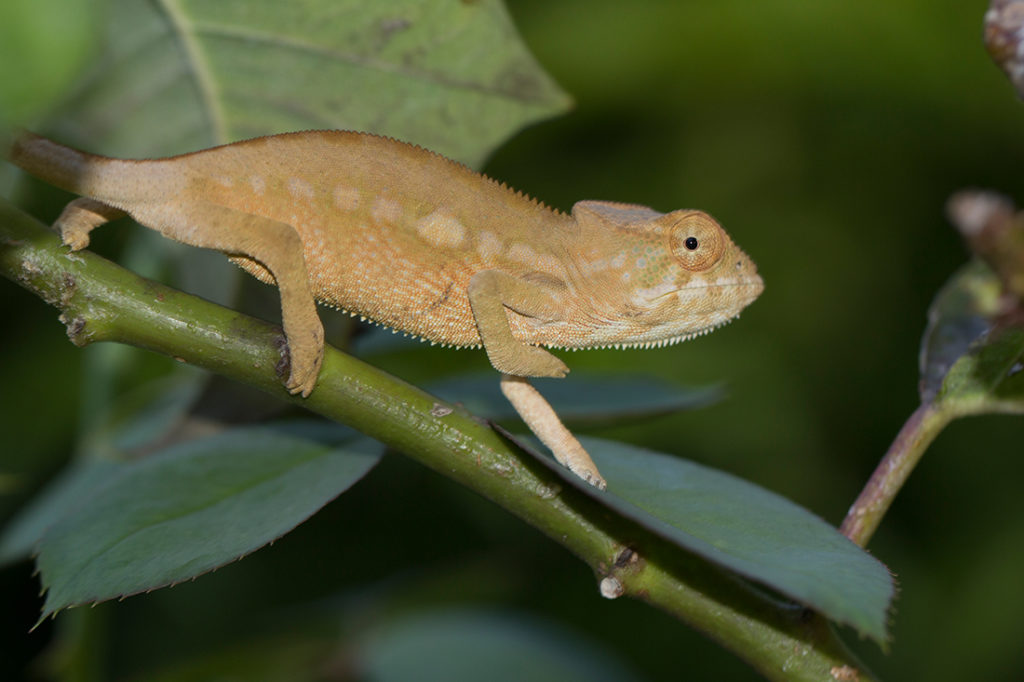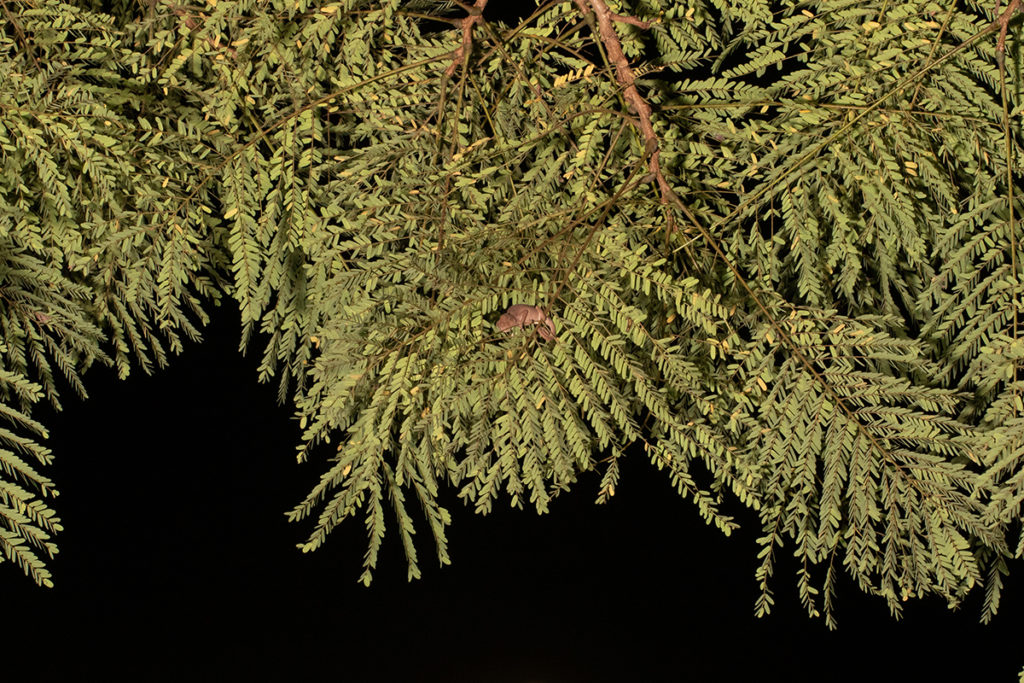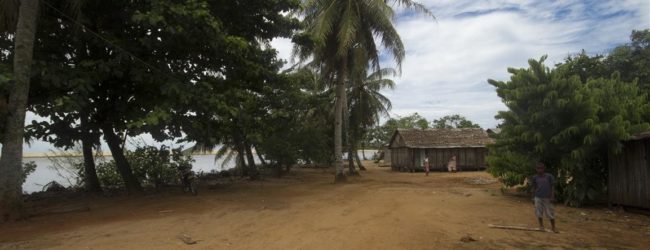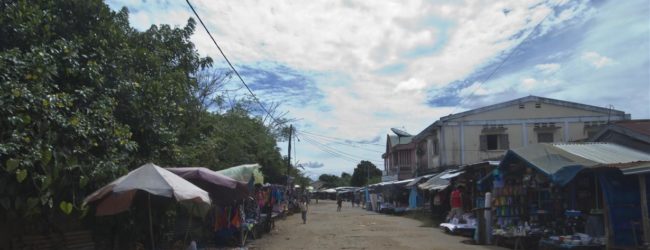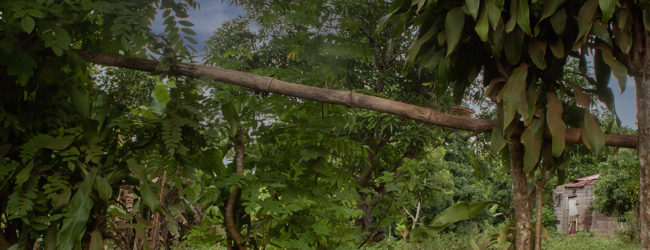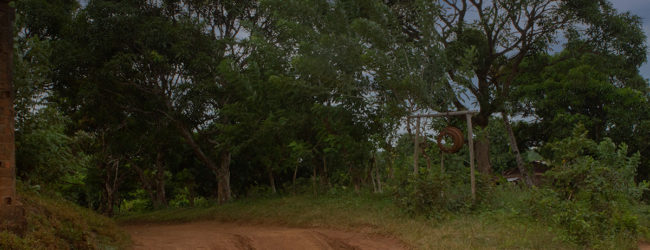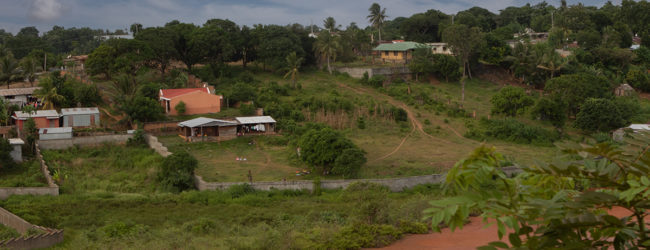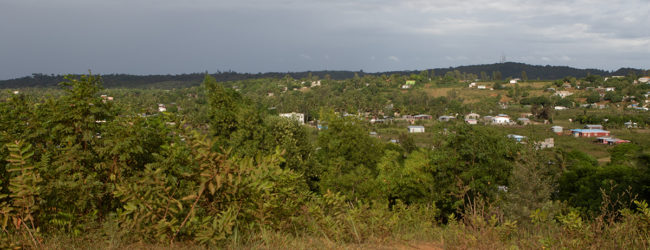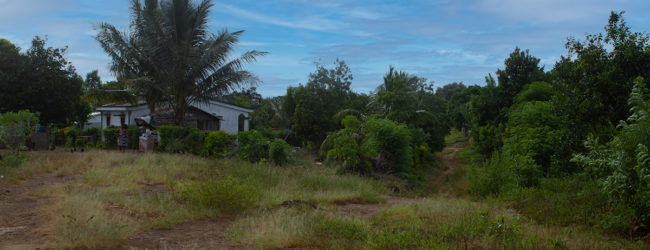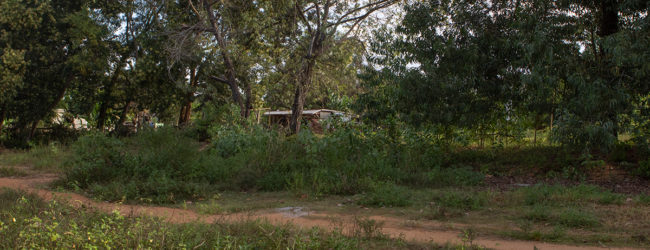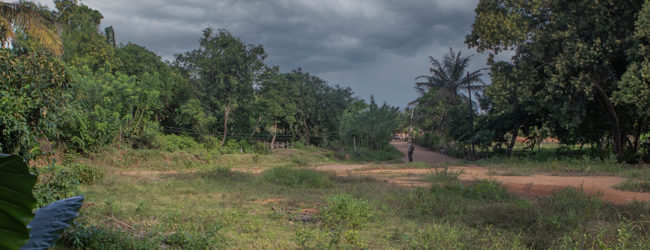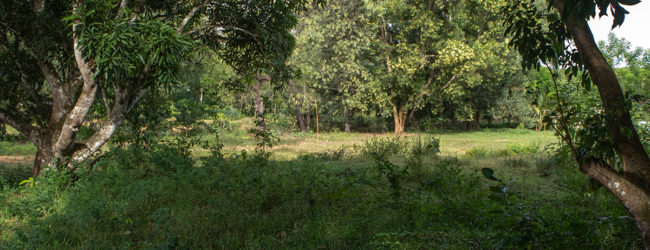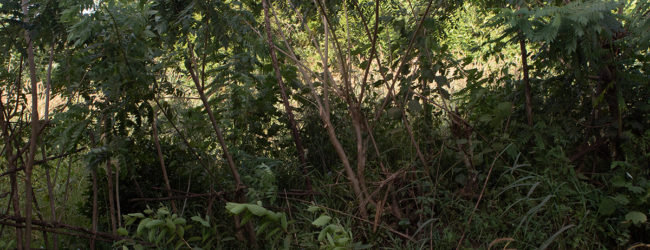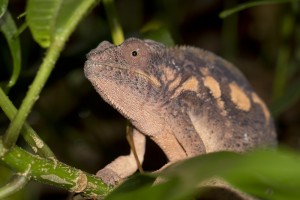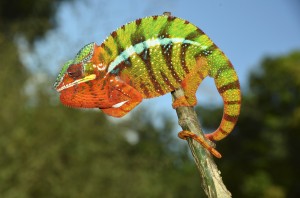Distribution of the local form Sambava:
Sambava is located on Madagascar’s east coast in the Sava region in the Indian Ocean. The city has approximately 45.000 inhabitants and is famous as the “capital of vanilla”. Most people here subsist on working in the surrounding vanilla plantations or the related factories, few are fishers or have rice fields. Sambava has its own small airport, you can hardly reach this region by car. To the north, this distribution area of the local panther chameleons is limited by a large river called Bemarivo. The Lokoho river flows to the south, while various smaller rivers in the west divide the Sambava local form from the Marojejy local form.
Appearance of the local form:
The males of this local form in the relaxed state of mind are green on the body with black-red, very dark banding. The top of the helmet and nose is green, the rest of the head including the eyelids is always bright red. The throat pouch, chest area, and parts of the tail may extend even more into orange in younger animals. If the males are excited, the green colors on the body partly change to orange up to bright yellow tones.
Weight table
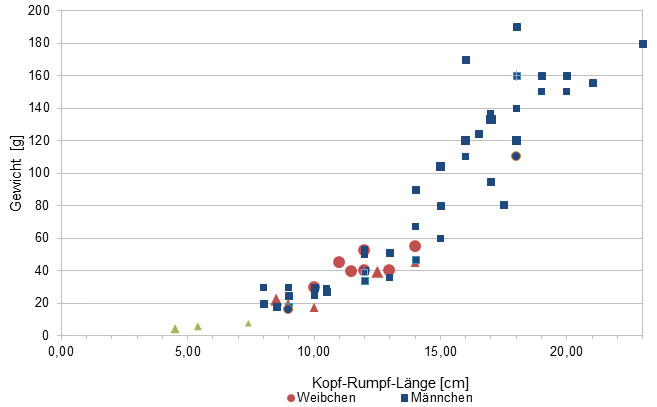
Gewicht = weight in grams, Kopf-Rumpf-Länge = snout-vent-length in cm, Weibchen = females, Männchen = males
Since 2015, we have been measuring the weights of chameleons found by us in Madagascar, as far as the animals (and our scales) participate. In the long term, we aim to obtain an average weight in relation to snout-vent-length (measured from the tip of the nose to the cloaca) for each species from as many measurements as possible. It is important to know that all weights were measured towards the end of the rainy season (= best food supply), so these should be maximum weights on Madagascar. Triangular symbols in females mean not pregnant, and round symbols mean pregnant. In Furcifer pardalis, contrary to our original assumption, it has so far turned out that there are no serious differences in the ratio of SVL to weight between the individual local forms.
| Jan | Feb | Mar | Apr | May | Jun | Jul | Aug | Sep | Oct | Nov | Dec | |
| Average temperature | 27 | 27 | 27 | 26 | 25 | 24 | 23 | 23 | 23 | 24 | 25 | 26 |
| Minimum temperature | 23 | 23 | 23 | 22 | 21 | 19 | 19 | 18 | 19 | 20 | 21 | 22 |
| Maximum temperature | 31 | 31 | 31 | 30 | 29 | 28 | 27 | 27 | 28 | 29 | 29 | 30 |
| Rain days | 20 | 18 | 18 | 15 | 14 | 13 | 16 | 16 | 13 | 13 | 15 | 18 |
We have collected the data given above over several years with thermometers and hygrometers at the finding places of the chameleons. "Average temperature" means that values of a whole month have been calculated to one average value per month. For example all measured minimum temperature values of February have been calculated to one average minimum temperature for February. In plain language, this means single peak values of a day may be a little higher or lower than the average minimum and maximum temperatures. It is possible that a location has an average maximum temperature of 29°C, but one day during that month it had 33°C or even 35°C there.
Climate on Madagascar's north east coast, where Sambava is located, is humid and warm all year long. That is why the world famous vanilla can grow here, and chameleons like the climate, too. In rainy season from October to April, Sambava has warmer temperatures with over 25°C and often more than 30°C during daytime. In the night, temperatuers fall only a little, and humidity is enormously high due to steady rain.
In dry season, temperatures are cooler but almost every day reaches 25°C, in most cases temperatures rises a little above this point. In contrast to rainy season, nights during dry season cool down to 15°C. It rains a little less but still very regularly, approximately every other day. Precipitation is simply less long-lasting. In 2022, we measured relative humidity on various days during the rainy season, and the data can be found below.
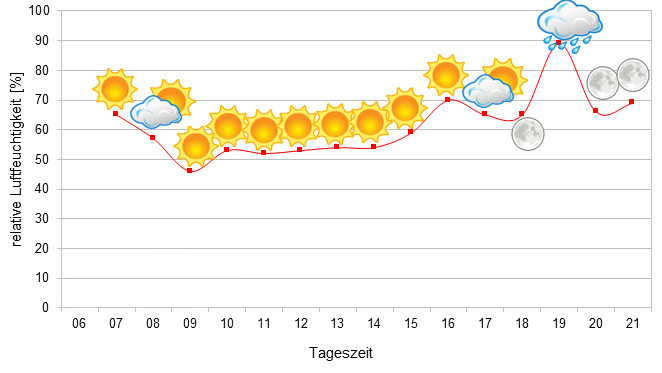
We have measured UVB data with a Solarmeter 6.5 in spring (end of April) at the peak of activity of chameleons in Madagascar. We always measured the values that a chameleon could maximally reach in its habitat.
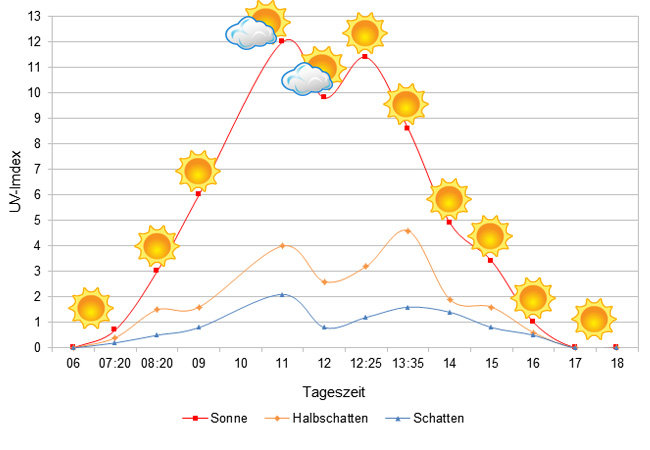
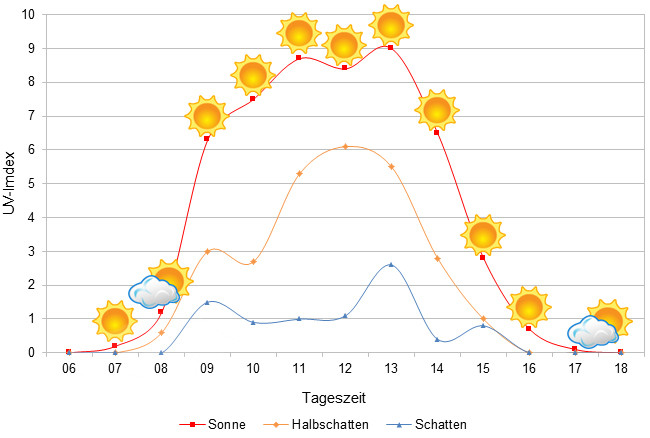
Since 2022, in addition to other climate data, we have also been measuring air pressure at the locations we visit in Madagascar. The following data are from different days during the rainy season. On the X-axis is the time of day or night. In Madagascar, the day begins around 6 a.m., and night falls at 6 p.m. The Y-axis shows the atmospheric pressure in hPa.
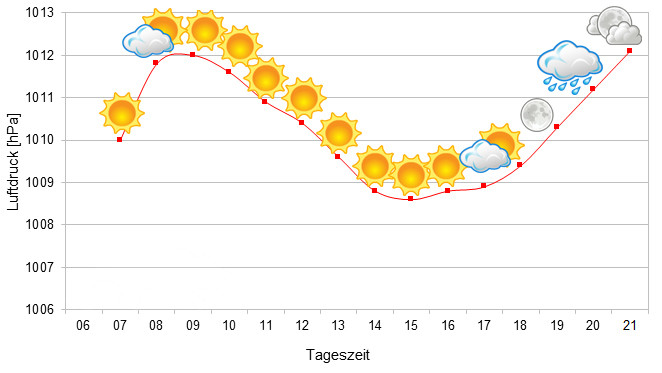
Habitat:
Panther chameleons are found here in trees and shrubs along the main road, but mostly in the open areas around Sambava itself. Within the city, panther chameleons are rarely found, as Sambava now has a large population of feral cats. Outside the city, however, in the secondary vegetation, the panther chameleons are still very numerous. Here the animals use everything they find: Hedges, trees, bushes, whether planted or feral among fields. The soil is a mixture of laterite and sand.

